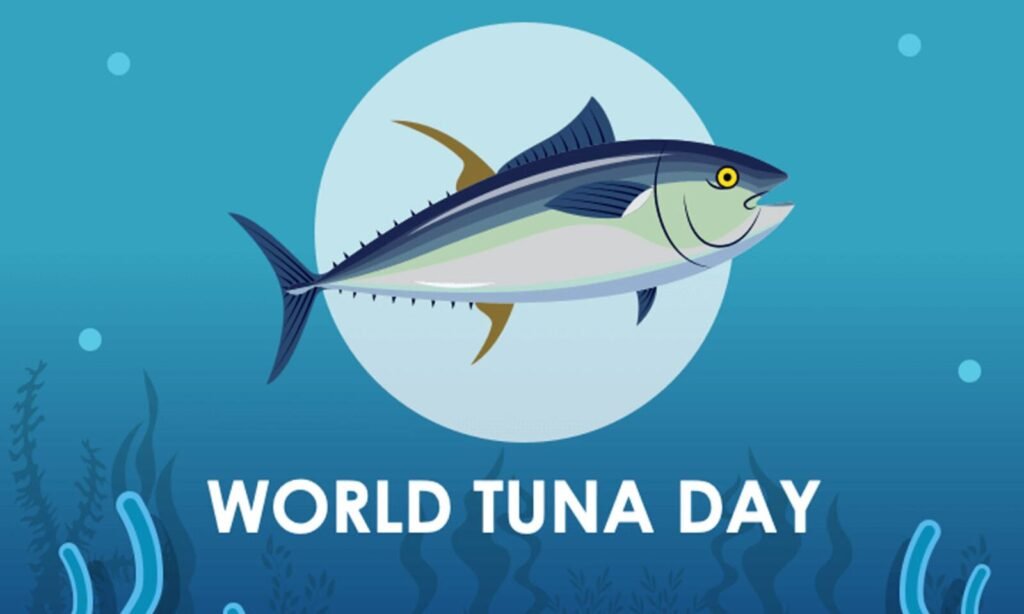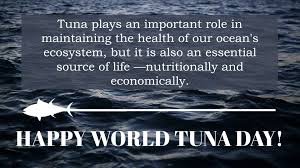World Tuna Day 2023: Significance and Importance
Tuna is a popular fish found in oceans around the world. It is a highly nutritious food that is rich in omega-3 fatty acids and protein. Tuna is also an important commercial fish, with a global trade value of over $42 billion in 2022. The United Nations designated May 2nd as World Tuna Day to raise awareness about the importance of this fish and to promote sustainable tuna fishing practices.

Why is World Tuna Day Important?
World Tuna Day is an important event for several reasons. First, it highlights the critical role that tuna plays in the world’s economy and food security. Tuna is a valuable source of income and food for many coastal communities, particularly in developing countries. Second, World Tuna Day raises awareness about the need to conserve tuna populations and promote sustainable fishing practices. Many tuna species are under threat from overfishing, habitat destruction, and climate change. Finally, World Tuna Day provides an opportunity to celebrate the cultural significance of tuna in many communities around the world.
Significance of Tuna:
Tuna is a highly nutritious fish that is rich in omega-3 fatty acids and protein. It is also an important commercial fish with a global trade value of over $42 billion in 2022. As a result, tuna plays a crucial role in the world’s economy and food security.
Promoting Sustainable Fishing Practices:
World Tuna Day raises awareness about the need to conserve tuna populations and promote sustainable fishing practices. Overfishing, habitat destruction, and climate change are significant threats to tuna populations, and sustainable fishing practices are essential to ensure their long-term survival.
Cultural Significance of Tuna:
Tuna has been an important food source for humans for thousands of years. It is a significant part of the diets and cultures of many coastal communities around the world. World Tuna Day provides an opportunity to celebrate the cultural significance of tuna and its importance to these communities.
Historical Context:
Tuna has been an important food source for humans for thousands of years. The earliest records of tuna fishing date back to ancient civilizations in the Mediterranean, where tuna was prized for its flavor and nutritional value. Over time, tuna fishing expanded to other parts of the world, and today it is one of the most widely consumed fish globally. However, tuna populations have declined significantly in recent years due to overfishing and habitat destruction. To address this issue, the United Nations General Assembly declared May 2nd as World Tuna Day in 2016.
5 Key Takeaways from “World Tuna Day 2023”:
| Serial Number | Key Takeaway |
|---|---|
| 1 | Tuna is a highly nutritious food that is rich in omega-3 fatty acids and protein. |
| 2 | Tuna is an important commercial fish, with a global trade value of over $42 billion in 2022. |
| 3 | World Tuna Day raises awareness about the need to conserve tuna populations and promote sustainable fishing practices. |
| 4 | Many tuna species are under threat from overfishing, habitat destruction, and climate change. |
| 5 | World Tuna Day provides an opportunity to celebrate the cultural significance of tuna in many communities around the world. |
Important FAQs for Students from this News
Q1. What is World Tuna Day?
A1. World Tuna Day is observed on May 2 every year to raise awareness about the importance of sustainable management of tuna stocks and to promote sustainable fishing practices.
Q2. Why is tuna important?
A2. Tuna is a popular fish species that is consumed all over the world. It is an important source of protein, vitamins, and minerals. It is also a valuable commodity for the fishing industry and supports the livelihoods of millions of people.
Q3. What are the threats to tuna populations?
A3. Overfishing, illegal fishing, and unsustainable fishing practices are the major threats to tuna populations. Climate change and pollution are also affecting the habitats of tuna.
Q4. How can we ensure sustainable tuna fishing?
A4. Sustainable tuna fishing can be achieved through the implementation of effective fisheries management practices, including quota systems, bycatch reduction measures, and monitoring and control measures. Consumers can also play a role by choosing sustainably sourced tuna products.
Q5. What is the role of international organizations in tuna conservation?
A5. International organizations, such as the International Commission for the Conservation of Atlantic Tunas (ICCAT) and the Western and Central Pacific Fisheries Commission (WCPFC), play a key role in the conservation of tuna populations through the development and implementation of conservation and management measures.
Some Important Current Affairs Links


